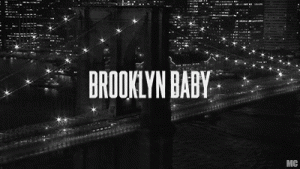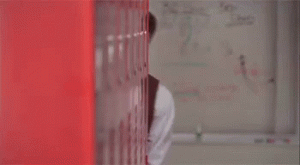Lansey Cerisier
Dr. Carrie Hall
English 1101
11/19/18
Why are you bugging out ? “You good”
There are kids fighting in distance, so much screaming and hollering. “BEAT THAT ASS SIS” or “NOBODY BETTER JUMP IN”. The typical events that happen in high school. After the fight is over a friend will usually ask their friend “you good?”and their respond back will be “yea I’m good”. It’s a weird way of asking someone if they’re okay but that’s just our way of talking. Born raised in Brooklyn, slang is like our second language. Throughout the streets you hear “you good” from adults, teens and old people. Particularly Flatbush where I’m from, we say it mostly everyday. Depending on your tone and face expression the way you say the phrase changes the meaning. New Yorkers tend to create new meanings from words they already use for example, the word mad describes someone’s emotions but New Yorkers also use it to describe an amount like “yo he’s mad tight”.
Why do people say “you good?” Instead of “okay?” my friends and I always say “you good” because I guess it’s more emphasis or we grew a habit of saying it. In many situations we use the phrase as a final thought
Girl: Did you break the news?
Best Friend: “Yes”, I can’t believe he’s cheating on me
Girl: “You good?
Best Friend: Hopefully
It has the meaning of “Are you doing okay?” and how are you handling the news received. When having a heart to heart conversation our way of checking up on someone is asking “you good?”.
We wouldn’t really use this slang with everyone. If my boss was bugging out I wouldn’t say “you good?” I’ll probably get fired or maybe terminated. When it’s comes to adults, professors or bosses it shows a sign of disrespect. Now I know every kid wishes to talk to any adult figure like this but I do agree it comes off rude. Our generation today expands the language of slang. You could say it’s a secret code us kids and teens use to communicate with each other. Slang is highly creative and shows that the English language is constantly evolving overtime. There’s so much more words that have been used constantly. Overtime words as dying, shade, the tea and wildin have been used in different ways without us realizing we’re creating multiple meanings. As a new generation is born it adds new and creative slang to the culture.
Although this is said in my borough I always wanted to know who starting to say it from the jump. Maybe the phrase had one meaning and overtime we developed more. First place I heard it was Brooklyn but now a days not only do you hear it in New York but lots of other states. Down South “you good?” Is used more aggressive then how us New Yorkers use it in a sympathetic way. You may think did this phrase actually come from New York, well it did. People all over the world have admired, copied, and evolved their own version of the language. New York being it’s birthplace we put our spin and style to the phrase. By hearing the way I talk you’ll know off the bat I’m from B-R-O-O-K-L-Y-N. We talk loud, aggressive, sometimes sarcastic usually saying “You good?” In those tones speaking the way we do it’s our tradition you could say. I grew up with this phrase and not using it or having it in my vocabulary loses the purpose of using it. Being raised in Brooklyn I grew to love my home. I lived here all my life and grew a custom to the language and style. It all started in middle school and high school, we begin to use slang more and use it as shortcuts to get right to the point. From there our way of talking changed.
You know you’re not a real New Yorker if you never heard or used “you good” like are you living under a rock? We started all these crazy slang words that we say everyday. If this phrase was said to a stranger they’ll probably scrunch their face and look at you with confusion. It’s kinda funny really if you picture the scene in your head.
Tourist: Walking and taking pictures of the famous red steps in Time Square all of sudden he falls.
New Yorker: Yo man! “You good?”
Tourist: Excuse me…
I mean come on, I would laugh too in my head just picturing their face and them thinking well why did he have to say it like that? It makes you eager on that the person meant either good or bad. As I said before slang is out second language, well for me the most. I say “you good” mostly all the time I might not notice it but I do. It’s apart of me and connecting to where I live my whole life. I go hard for my borough wouldn’t you ?! When you have seen Brooklyn and explore it you’ll make sure it’s represented right. Brooklyn is the best borough in my opinion. We bring life to dance , slang , and style. There’s beautiful street art in Williamsburg , a bridge to walk , many parks to visit and so much culture. Traveling to another borough suck as the Bronx I’ll feel out of place that I don’t belong there. Stand out as a sore thumb and wouldn’t blend in but in Brooklyn I fit right in. By the way we talk, dress, drag things to the max we are Brooklyn. Saying the phrase represents Brooklyn and the part I’m from Flatbush.
In many situations the phrase is said constantly but we can’t help but to say it. We may be judged by the way we talk but the sets us apart from everyone else. From first hand walking in my hood I just observe my surroundings. You could hear the loud noises from the cars and the conversations people hold. The choice of words they use and how they use it is why we have all these words. The way we express our emotions and use slang helps us to understand each other. There’s a better connection and vibe you’ll receive from one another.
My personality is shown more with how I talk and use this phrase. I could be sarcastic, worried, scared and a lot of emotions towards an event. “You good?” is self explanatory though it can be tricky if hor the person uses it. Over time a new word is created or a word is used constantly creating multiple meanings but do we know the origin of where it came from or why we say it everyday?
Work Cited
- Marer, Jennifer. “Here’s a List of Modern Slang Words that 2018 Teens Say.’’ 5 July.2018, entitymah.com
- Signore, John- Del. “ 100 Reasons Why Brooklyn Lives up To The Hype” 28 June.2011, gothamist.com
- Ferriss, Lucy. “Are You Good’’ 17 July.2012, chronicle.com
- Lankford, Kevin. “ Learning The Lingo: In NYC, You Good” Has At Least 8 Different Meanings’’ mymajicdc.com
“You Good? | Definition of You Good in English by Urban Dictionary. Urbandictionary.com/ definition/ “you good?’’



